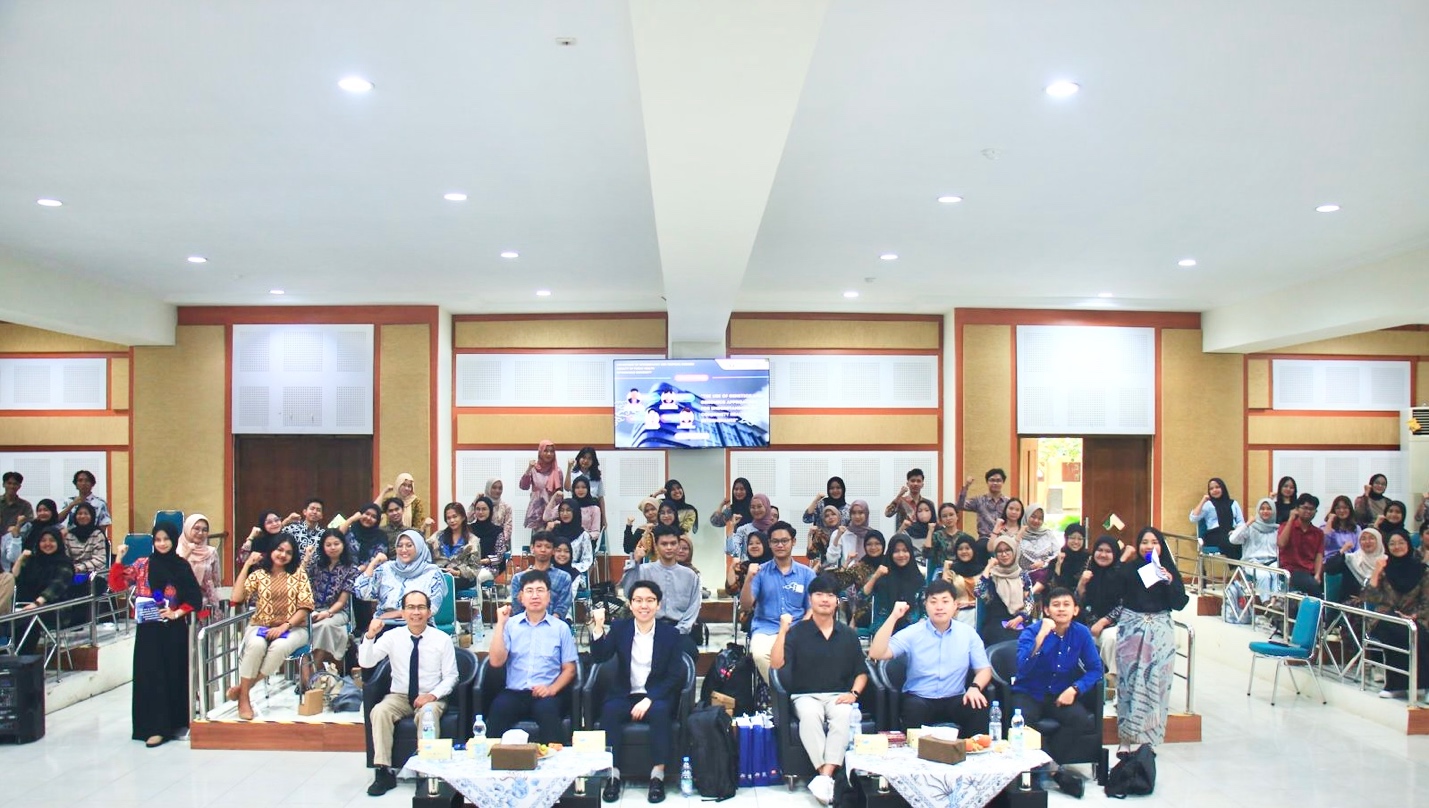Semarang, 19 Agustus 2024, The Faculty of Public Health Universitas Diponegoro (UNDIP) proudly announced the launch of its new Visiting Professor Program, focusing on The Use of Genetics and Genomics Approaches for Understanding Community Health Determinants. This groundbreaking initiative aims to bring together leading experts in genetics, genomics, and public health to explore the complex interplay between genetic factors and community health outcomes.
Set to commence this semester, the program successfully hosted distinguished professors and researchers from South Korea. These visiting scholars collaborate with faculty members, engage with students, and contribute to advancing the university’s research in public health genomics. The program’s central theme reflects UNDIP’s commitment to addressing contemporary health challenges through cutting-edge science and interdisciplinary collaboration.
“We are excited to introduce this Visiting Professor Program again this semester, which underscores our dedication to integrating advanced scientific approaches into public health practice,” said Dr Muh Fauzi, lecturer at the Epidemiology and Tropical Diseases Department the Faculty of Public Health. “By focusing on genetics and genomics, we aim to deepen our understanding of how genetic factors influence community health and to develop more effective strategies for disease prevention and promoting health to the community in Indonesia.”
The visiting program began with a general lecture on 19 August 2024 covering a range of topics, including “Human Disease and Molecular & Genetic Analysis” by Prof. Jeon Bo-Young (Department of Biomedical Lab Sciences, Yonsei University), “Genetic Diversity and Geographical Analysis” by Prof. Han Jin-Hee (Department of Environmental Biology and Tropical Medicine, Kangwon National University, and “Metagenomics and Parasitology” by Prof. Kim Ju-Yeong (Department of Tropical Medicine, Yonsei University). This lecture attracted a wide audience of undergraduate and graduate students.
On day 2 and 3 (20-21 August 2024), the invited professors gave a collaborative training on “Enzyme Linked Immunosorbent Assay (ELISA Techniques) and Genetic Diversity Analysis for Tropical Infectious Diseases”. The training was limited for only 30 students of public health and the training was held for 16 hours in 2-days training program. The students were trained to perform the ELISA techniques using rat samples, ELISA result interpretation and analysis, sequence alignment, single nucleotide polymorphism analysis, phylogentic tree analysis, and also genetic distribution, natural selection and genetic diversity analysis. The Visiting Professor Program led to foster partnerships between Faculty of Public Health with experts from Yonsei University and Kangwon National University, enhancing the practical application of research findings in community health initiatives. By integrating genetic and genomic data into public health strategies, the program seeks to improve health outcomes across diverse populations.

(General Lecture 19/08/2024; in frame left to right: Derico (student representative), Prof Kim Ju-Yeong (Yonsei University), Dr Jun Hojong (Kangwon National University), Prof Jeon Bo-Young (Yonsei University), Prof Han Jin-Hee (Kangwon National University), Dr Muh Fauzi (FKM UNDIP))
 (Hands-on Genetic and Genomics Analysis 20-21/08/2024; in frame: Prof Han Jin-Hee gave a training to the students for how to analyse the genetic diversity and geographical analysis)
(Hands-on Genetic and Genomics Analysis 20-21/08/2024; in frame: Prof Han Jin-Hee gave a training to the students for how to analyse the genetic diversity and geographical analysis)

(Hands-on Training on ELISA Technique 20-21/08/2024; in frame: Dr Jun Hojong and Prof Kim explaining the procedures of how to conduct the wet lab on ELISA and DNA extraction for genetic and genomics downstream study)

(In frame: Professors, Dr Budiyono (Dean FKM UNDIP), and the public health genomic lab members after completion of wet lab work)

